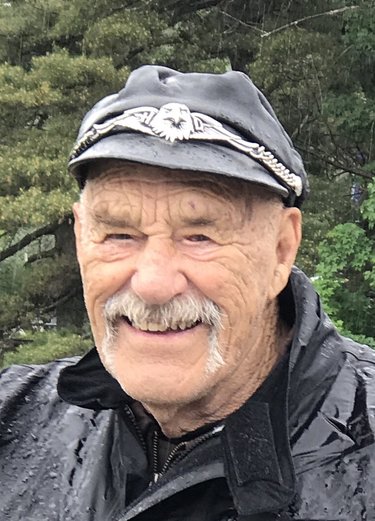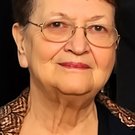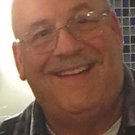Raymond Lee Munroe
ALTAMONT — Buddy Munroe’s first memory as a child was tossing empty tin cans around in an old, doorless garage.
“I don’t know how old I was — perhaps around three or four,” Munroe wrote in the opening paragraph of his autobiography. “At about this same time, I was also bitten in the face by our police dog but do not remember any of the details. I do remember seeing pictures of me with white bandages on my face but somehow those pictures just disappeared. Whether I destroyed them later from embarrassment, shame, or fright, I do not know or maybe my folks did because I was so scared of the way I looked or some screwy thing.”
Mr. Munroe died on Sunday, June 14, 2020. He was 92 years old.
Raymond Lee Munroe was born to Milton and Ruth (née Scrafford) Munroe on Nov. 30, 1927, in Scotia, in a bungalow built by his grandfather.
“My Dad worked as a milkman in the city of Schenectady, using a horse and wagon and a sleigh in the winter for deliveries,” Mr. Munroe wrote. “During the time we lived here on the Amsterdam Road (as it was called), he got a job with one of the railroad companies, working at a turntable, which was located on route 5S just across the Mohawk River from where we lived. He used to walk the railroad bridge across the river to get to and from work.”
Mr. Munroe’s father would also go onto work for the Industrial Bank of Schenectady; Mrs. Munroe was a homemaker.
In 1932, Mr. Munroe’s family moved to a rented farm on Settles Hill, just outside of Altamont.
“At the road’s edge was a large square rock that was used to get in and out of carriages during the horse-and-buggy days,” Mr. Munroe wrote of the Settles Hill farm. “From here, was a slate walkway to the front porch of the house.”
He wrote that the Furbeck Road home was “square and solid” but had no electricity, telephone, or running water, and just a single stove for heat. Water had to be pumped from a well and carried into the house, while the family’s bathroom was an outhouse and “mighty cold when used in the winter.”
Mr. Munroe wrote, “The winters up here on Furbeck Road were pure hell. The snow and wind back in those days were relentless. The roads were usually plugged and drifted shut with heavy snows and, when occasionally plowed out, they would soon drift back in.
“Many, many times my Dad drove up Schoharie Turnpike as far as he could and then would walk a good half-mile through fields of knee-deep snow and freezing winds to get home. In the morning, he’d go through the same thing so he could get to work at the ALCO [American Locomotive Company]. Making sure there was enough firewood was the number-one priority and that took a lot of time and energy.”
Mr. Munroe recalled how his father would take the battery of the family’s Ford Model A and bring it inside to hook up to the radio, “so we could listen to certain programs on certain nights”; two hours was the limit so there’d “be enough juice left in it to start the Ford the next morning.”
Four years later, the family would move from Settles Hill to a farm of their own on Darrow Road in Princetown.
“The summer times here in the late ’30s and early ’40s were very pleasant and, even though there was always a ton of work to be done, we seemed to have a lot of quiet, lazy evenings after the milking was done, except during haying season that is,” Mr. Munoe wrote. “A lot of the time, relatives from the city would come up to escape the heat, bringing with them some snacks and quarts of Dobler beer.”
By the mid 1940s, the United States had entered World War II.
“I was 17 now in 1945 — had a farm deferment but would be 18 in November and Dad was so worried I’d be drafted into the Army. My folks thought it would be better for me to enlist in the Navy before the Army got me,” Mr. Munroe wrote. “When the war ended, they were still drafting men, so I enlisted in September and left the farm on November 1, 1945.”
He wrote that Word War II “ended while we were tenting, so we disconnected the Model A Ford exhaust pipe and drove around some little burg near the lake, back-firing the Model A and honking the horn. Everyone was out making noise and celebrating the end of the war… .”
Mr. Munroe spent three months of boot camp in “swampy burg,” at Camp Peary in Virginia, “lonely and homesick as hell through my birthday, Thanksgiving, Christmas and New Year’s.”
He spent four years in the Navy as a gunner and radioman, and was discharged as a petty officer second class
“When discharged, Mr. Munroe wrote, “Earl Wolff, me, and one other guy bought an old Chevy coupe and drove cross country to our homes here in the East. From 1946 to 1949, I crossed the USA in a car, on a train, on a plane, in a bus, and hitchhiked it. In 1988 — crossed it twice on a Harley Davidson motorcycle and again, twice on a Harley in 2002.”
After being discharged from the Navy, Mr. Munroe married the woman who would be his wife for the next nearly 70 years; their union ended only with his death.
Marian and Buddy were set up on a blind date, their children said. (“The nickname Bud came from my father,” Mr. Munroe wrote. “He called me his buddy.”) “Mom was a city girl from Albany and dad was a country boy,” Mike Munroe said.
Mrs. Munroe said she wouldn’t marry Buddy unless he went back and got his GED, which he did after he got out of the Navy.
The couple had six children.
Mr. Munroe worked in the Altamont Post Office as a rural carrier for 30 years, retiring in December 1988.
Reflecting on his youth, Mr. Munroe wrote, “It sure went FAST…”
He then added his own advice to today’s youth: “So to all you young people who are reading this — Be happy and keep your nose clean. Enjoy every moment of your youth — it’ll be gone and over with before you know it.”
****
Raymond Lee Munroe is survived by his wife, Marian; his children, Jim Munroe and his wife, Dawn, Wendy Connors and her wife, Kim Delahanty, Tom Munroe and his wife, Lori, Mike Munroe and his wife, Gail, and Randy Munroe and his wife, Theresa; his 15 grandchildren; and his 22 great-grandchildren.
He is also survived by his sister, Virginia.
His son, Ricky Munroe, died before him.
Mr. Munroe’s body will be cremated and escorted to Fairview Cemetery in Altamont by the Patriot Riders and American Legion Riders of Altamont, and will be buried with an honor guard.
Memorial messages may be left at www.altamontenterprise.com/milestones.
Memorial contributions may be made to the American Legion Post 977 Helderberg Riders, 988 Altamont Blvd., Altamont, NY 12009, or the Boyd Hilton Veterans Foreign Wars Post 7062, 11 Mill St., Altamont, NY 12009.
— Sean Mulkerrin



